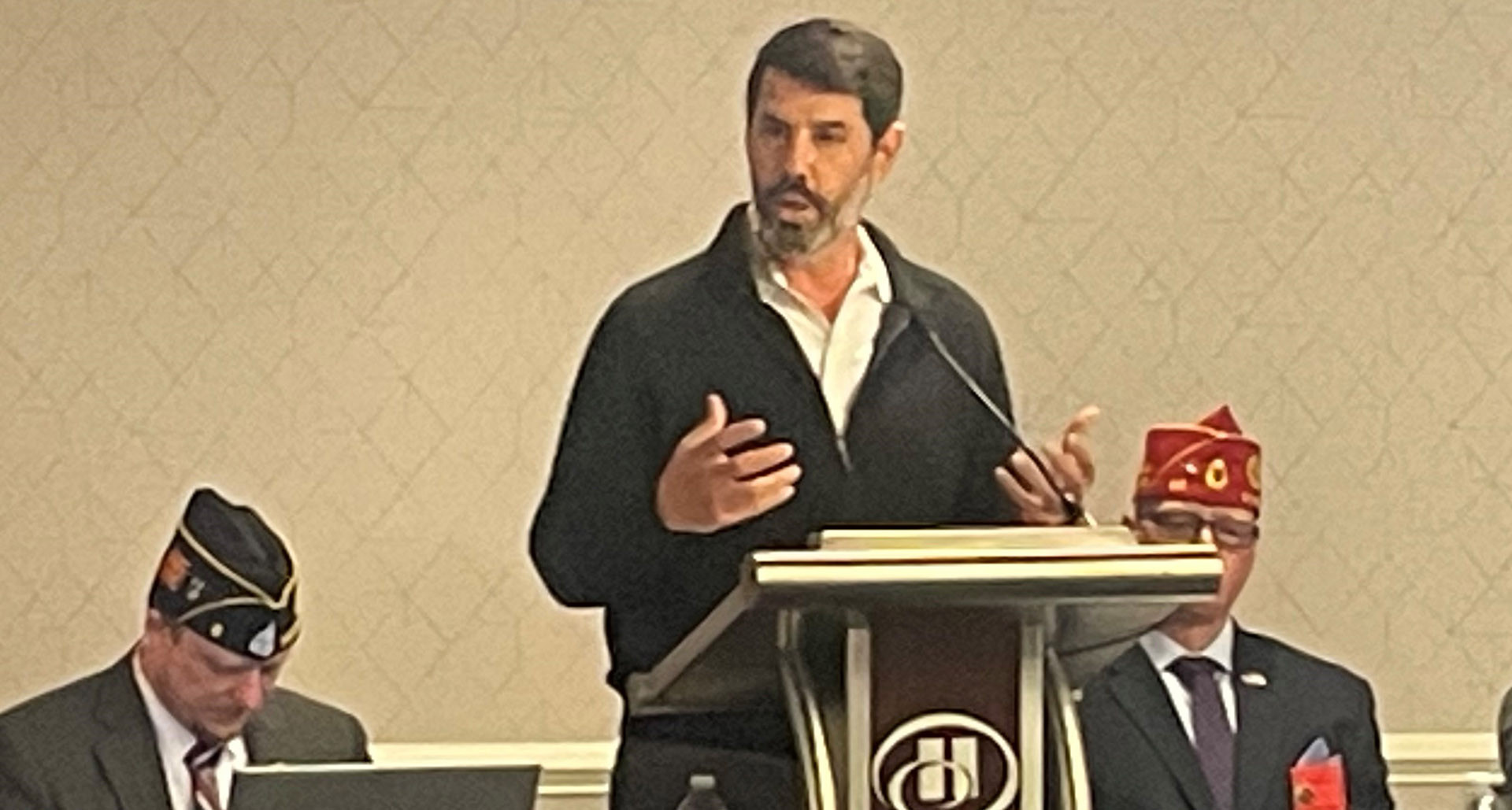
National nonprofit Boulder Crest Foundation is working to change the broken veteran narrative – something that is a priority of The American Legion.
One of the top priorities for The American Legion during the 119th session of Congress is winning what the organization has called “The War Within” to reduce the rate of veteran suicides. Tied in with the Legion’s Be the One mission, the key components of winning that war are destigmatizing the pursuit of mental health assistance by veterans, and increasing access to mental healthcare and paving the way for alternative therapies.
Mario Marquez, the Legion’s Director of Government Affairs and a 31-year U.S. Marine Corps veteran, shared that goal last December leading up to the Army-Navy Game, when he shared during interviews on media row, “It’s about breaking the broken veteran narrative and reaching resiliency as a veteran community.”
A similar vision was shared during a recent meeting of the Legion’s Be the One Mental Wellness Committee during the annual Washington Conference. Josh Goldberg, chief executive officer of the national nonprofit Boulder Crest Foundation, provided a briefing on his organization’s mission of assisting military, veterans, first responders and their families dealing with post-traumatic stress disorder (PTSD) by realizing that post-traumatic growth (PTG) is possible after a person experiences trauma.
“More than anything in the world, I fundamentally believe that our nation is at its strongest when veterans are the most respected group of people,” Goldberg said. “That doesn’t mean you’re getting free stuff. It means people look and say, ‘You understand something that I don’t. You did things that I didn’t. You understand the value of service.’
“We’ve created a world where far too often, veterans are … damaged goods. It doesn’t work. It doesn’t hold, and it’s not the story with my life and with my interactions with veterans. Veterans are the ones who taught me how to live a good life and how to navigate struggle and difficulty in my existence. If you tell people enough times that they’re broken, they might just believe it. They might surrender the possibility that they can live a good life.”
Goldberg said that Boulder Crest provides hope in its treatment plan to achieve PTG. “I firmly believe that the most important ingredient in any human being’s life is hope,” he said. “Hope that how things are isn’t how they have to be. You have to know that post-traumatic growth exists in order for it to happen. You have to know it’s OK for good things to happen after really bad things.”
Losing that hope can cause a chain reaction.
“Our thoughts spiral in a negative fashion. We think about what did we do to deserve this?” Goldberg said. “Is it ever going to be good again? Either we can’t feel, or we feel deep despair. We feel profound anxiety. And we engage in actions that are designed to help us find some measure of relief. Relief from the pain, relief from the reality, relief from this notion that life’s never going to be good.”
Goldberg noted that too many veterans choose to cut themselves off from society, rather than asking for help when they are mentally struggling.
“The struggle that many veterans around this country have is isolation,” he said. “One of the perverse jokes during COVID amongst my veteran friends was, ‘You want me to stay in my house and avoid other people over long periods of time? I’ve been practicing this for 10 years.’ That would be more amusing if it weren’t for the fact isolation is literally the worst thing for a human being to do. It’s worse than smoking. In ancient culture they wouldn’t kill you if you committed a cardinal sin. They would exile you, and they said it was a fate worse than death.”
Boulder Crest’s Warrior Progressive and Alternative Training for Helping Heroes (PATHH) programs provides the training for those experiencing PTSD to turn their struggle into the ability to thrive in the aftermath of trauma. It’s a free, 90-day, non-pharmacological, peer-delivered training program that begins with a seven-day intensive and immersive initiation. Following that are three months of dedicated support, training, accountability and connection from a team of trained combat veterans.
Including families in the program are a critical part of the treatment. “The thing we cannot lose, and is something that has been true to the origins of Boulder Crest, is that struggle is contagious,” Goldberg said. “PTSD is contagious. If there is somebody struggling in a home, you can bet that everyone else in that home is also going to be struggling.”
Goldberg said that in addition to stemming the tide of veteran suicides, Boulder Crest also has a goal of assisting those still serving. “Do I think that zero suicides are possible? No, I don’t think that’s feasible,” he said. “But I think we can fundamentally solve the challenge of mental health that has afflicted the veteran community and now, if you’re tracking, is spreading into the active-duty community in ways that we haven’t seen before.”
- Be the One

